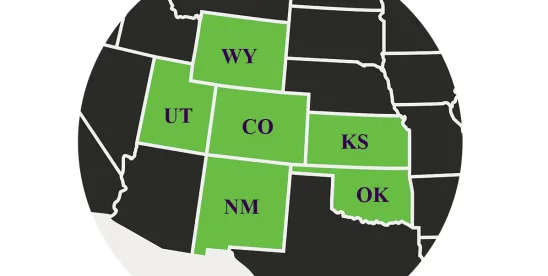Any of you who have ever litigated with or against me know that I am a step by step sort of guy. Sometimes tediously so.
It is incredibly important to me that procedural rules are followed to the letter and that every advance toward victory be well and truly founded. That’s probably why I always seem to win. Its also why I’m pretty poor dinner company.
And its also why I love this little under-the-radar case out of D. New Mexico– Escano v. Cv Concord Auto Protect, No. 21-223 MV/CG, 2021 U.S. Dist. LEXIS 130129 (D. N.M. July 13, 2021).
Ask any TCPA lawyer whether TCPA cases are removable to federal court and you’ll get an almost immediate “yes.” And chances are they’ll cite you back to the Mims Supreme Court case from 2012.
Mims was a very interesting little case for a number of reasons–but it did not actually address removability. Rather it addressed whether original jurisdiction might exist in federal court. (It found that TCPA cases could be brought in federal court, although state courts also have concurrent jurisdiction over such matters.)
Now, the fact that federal courts have jurisdiction over claims brought under a federal statute shouldn’t be surprising–except the TCPA has a weird private right of action that seems to limit plaintiffs to suits in state court only. Mims essentially read those words out of the statute–and without much analysis–at least for purposes of permitting suits originally filed in federal court.
But what about cases filed in state court and removed to federal court?
While most practitioners assume that all federal claims are removable, that is not necessarily so, as the Escano case analyzes. And it is a remarkably under appreciated issue:
"Since the Mims decision, neither this District, this Circuit, nor any other circuit has considered directly whether TCPA cases may be removed from state court to federal court."
Now ultimately I think the answer is “yes” these cases are removable–which is the same conclusion Escano came to–but its important not to skip analytic steps in litigation.
Of course, removal on federal question grounds is distinct from whether an Article III injury exists permitting a TCPA claim to stay in federal court. And Escano is interesting on that piece as well.
The Escano Plaintiff sought to remand his claim back to state court arguing, in essence, that he had not been harmed by the Defendant’s conduct. (We’ve been seeing goofy arguments a lot lately, and they really should bar future litigation on the federal claim in state court, but I digress.)
The Court refused to remand, however, finding that plaintiff had certainly been injured by the dozens of unwanted calls and texts he alleged he received.
I imagine the discourse went something like this–
Plaintiff: I wasn’t injured.
Court: Yes you were.
Plaintiff: No really I wasn’t though.
Court: You were badly injured.
Plaintiff: I’m right here judge. There’s nothing wrong with me. I’m good. I promise.
Court: Injured.
So anyway, the claim stayed in federal court.
One last note here– unlike the TCPA it turns out the removal statute does not require prior consent from all defendants, just consent.
In Escano the removing defendant apparently didn’t get the consent of the other defendants before removing. But the other defendants eventually agreed to removal, albeit only after the Plaintiff moved to remand. So the court found that consent to removal doesn’t have to come before removal–and that’s good to know.




 />i
/>i

